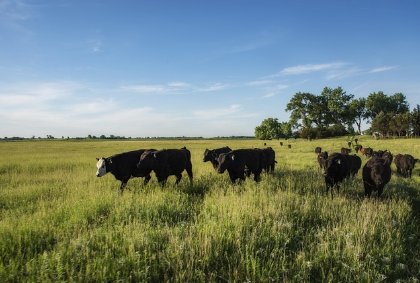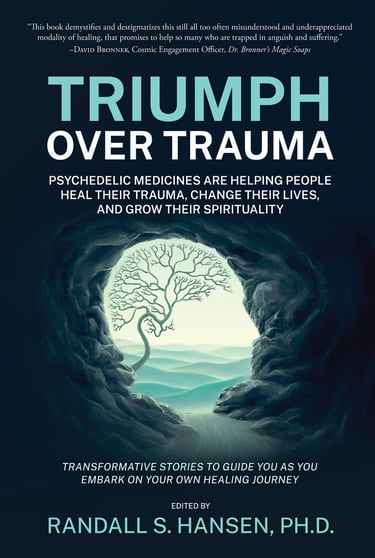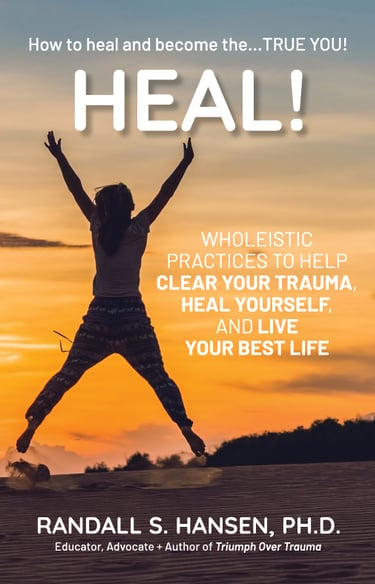Hold the BEEF! For Your Health, Eat Only Sustainable, Pastured Beef
Do you enjoy a tasty steak, hamburger, or roast? Chances are you do, but unless you are buying the beef from properly raised cows, you are not only supporting a questionable industry but also endangering your health.
This article looks at the problems with factory-farmed cattle and why we should be doing our best to purchase and eat pastured, grass-fed beef raised locally, not in some random feedlot -- including the problems with how beef is labeled in your local store.
A Little History About Cattle Ranching
Beef has been demonized over the years -- and it is not the fault of vegans -- rather, it is due to the growth in the factory farming of cattle. If we look back a century ago, most cattle (and other animals) were raised on small farms and ranches, typically allowed to graze in fields until it was time for them to be slaughtered.
Today, so much of the beef available for sale in our supermarkets comes from massive feedlots and factory farms -- consisting of thousands of animals confined to small spaces and given GMO feed (corn, soy, and grains), antibiotics (because of squalid conditions and fattening properties), and sometimes growth hormones (to fatten them up quickly). Amazingly, only four companies produce the VAST majority of the beef in the United States: Tyson Foods, JBS USA, Cargill Meat Solutions, and National Beef Packing Company.
Factory-farmed cattle are being slaughtered younger, fatter, and at a more sickly state. About a half century ago, the average weight of slaughtered cows was about 579 pounds; today, that number is well over 800 pounds.
Have you visited a local ranch? Have you seen happy cows grazing and roaming in the fields? That's the other problem we face -- most Americans have no idea of where their food comes from and how it is grown/raised. We may have this idyllic picture of cows grazing peacefully in the fields when the reality is about three-quarters of all cattle raised in the U.S. are housed in tight quarters with hundreds of other cows, waste everywhere, and the only food source being troughs. Not a pretty sight.
When we traveled the U.S. a few years back, we saw many horrible feedlots, but we also visited several small-operation ranchers who were raising their cattle in pastures -- often using sustainable and regenerative methods. These folks typically had full-time day jobs because small operators do not see the kind of money the factory farms receive.
Today, we happily live in a rural area in which many people raise cattle -- and we have had the opportunity to visit a few of these farms and buy cuts of beef... and even a half-share of beef that continues to keep our freezer full!
But what if you live in the suburbs or a city? Amazingly, you have some options. If you really love beef, then I suggest you go to LocalHarvest or EatWild and find a rancher within driving distance and take a trip to their farm. If you only occasionally eat beef, then consider a subscription service such as CrowdCow, ButcherBox, or TruBeef.
Health Benefits of Grass-fed and Grass-finished Beef
While the horrible conditions of factory farming might be enough to stop you from ever reaching for that beef in the supermarket -- or, worse, Walmart -- the truth is that cattle raised the way they are meant to live provides multiple health benefits.
Grass-fed beef is one of the most nutrient-dense proteins you can buy. It has an extensive micronutrient profile (including choline, carnitine, zinc, iron, Vitamin A, Vitamin K, Vitamin E, and other antioxidants), is leaner than grain-fed beef, and contains a good amount of brain-boosting omega-3 fatty acids. Grass-fed beef is also rich in terpenes, a potent antioxidant that have the ability to reduce inflammation and may even help reduce cancer risks. Grass-fed meat also has high amounts of CLA (conjugated linoleic acid), which has been shown to support healthy blood sugar levels and possibly reduce certain cancers, as well as lower rates of heart attacks and heart disease.
Finally, grass-fed beef may also help decrease inflammation in the body. Chronic inflammation is the number one source of illness. Long-term or chronic inflammation can lead to damaging effects -- and is associated more often with autoimmune disorders. (Side note: The WORST foods to eat in terms of inflammation include sugar, refined carbohydrates, alcohol, processed meats, and trans-fats.)
Beef Labeling is Practically Useless
As a professional marketer for most of my life, I am embarrassed at how badly the government allows food labeling to be so misleading to consumers.
You'll often see completely unregulated and meaningless labels on meats: natural, pasture-raised, humanely-raised, no antibiotics, grass-fed. These terms mean nothing -- except as a marketing gimmick to entice you to buy factory-farmed meat.
If you do continue to buy beef in the supermarket, please look for one of these labels:
PCO Certified 100% Grass Fed -- guarantees that the cattle were fed only grass and forage with no grain and raised according to USDA Organic standards, which promote a sustainable system of agriculture. Organic standards prohibit administering antibiotics, hormones, and growth promotants, treating pasture with synthetic herbicides, planting genetically engineered plants such as alfalfa in pasture, and much more.
Certified Grassfed by A Greener World (AGW) -- guarantees that the beef comes from cattle fed a 100 percent grass and forage diet, raised outdoors on pasture or range and managed according to the highest welfare and environmental standards on an independent farm. Furthermore, the cattle cannot be confined to feedlots and did not have daily drugs.
Additional Beef Resources


Dr. Randall Hansen is an advocate, educator, mentor, ethicist, and thought-leader... helping the world heal from past trauma. He is founder and CEO of EmpoweringSites.com, a network of empowering and transformative Websites, including EmpoweringAdvice.com.
He is the author of the groundbreaking Triumph Over Trauma: Psychedelic Medicines are Helping People Heal Their Trauma, Change Their Lives, and Grow Their Spirituality and the well-received HEAL! Wholeistic Practices to Help Clear Your Trauma, Heal Yourself, and Live Your Best Life.
Dr. Hansen's focus and advocacy center around true healing ... healing that results in being able to live an authentic life filled with peace, joy, love. Learn more by visiting his personal Website, RandallSHansen.com. You can also check out Dr. Randall Hansen on LinkedIn.






